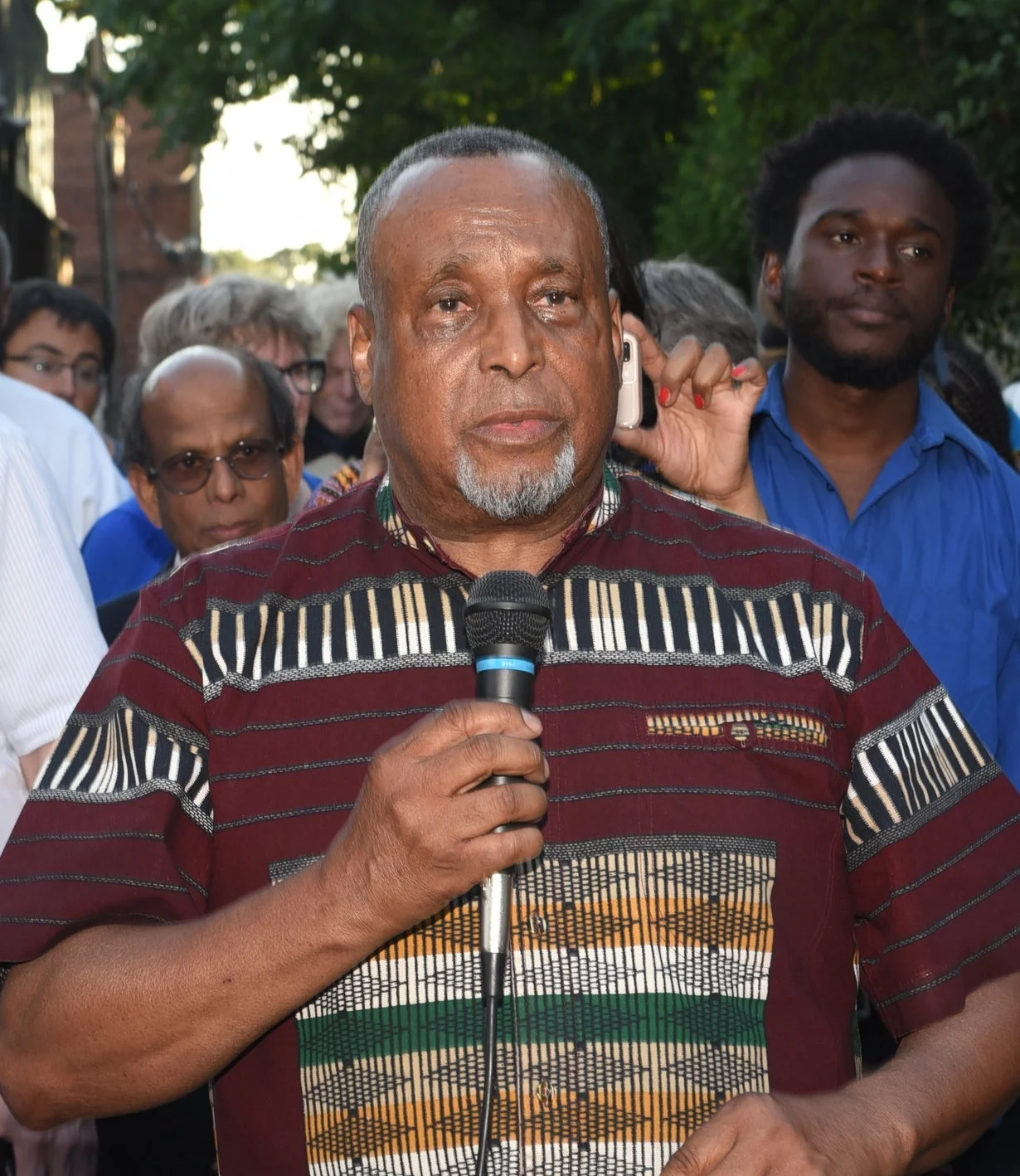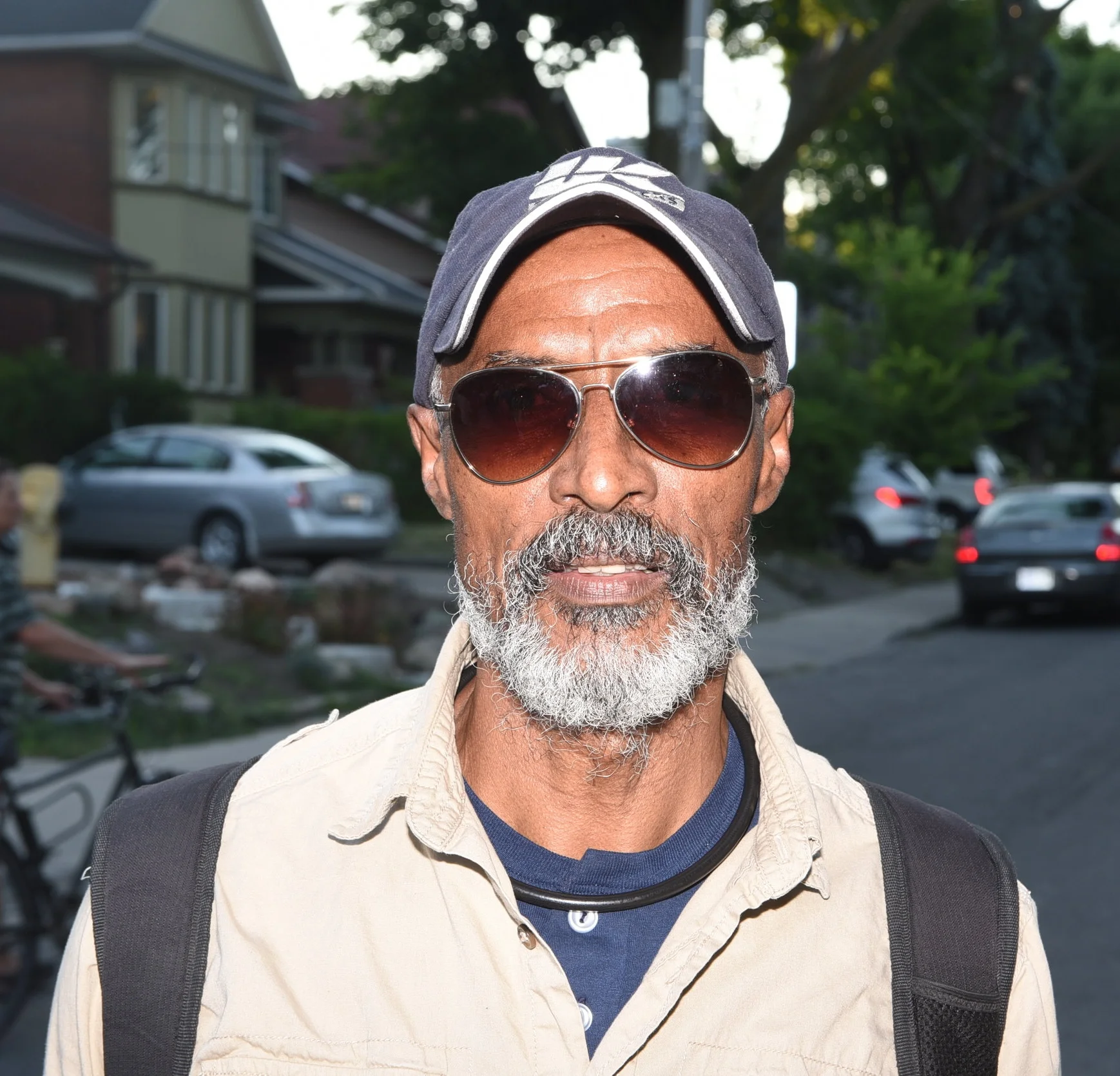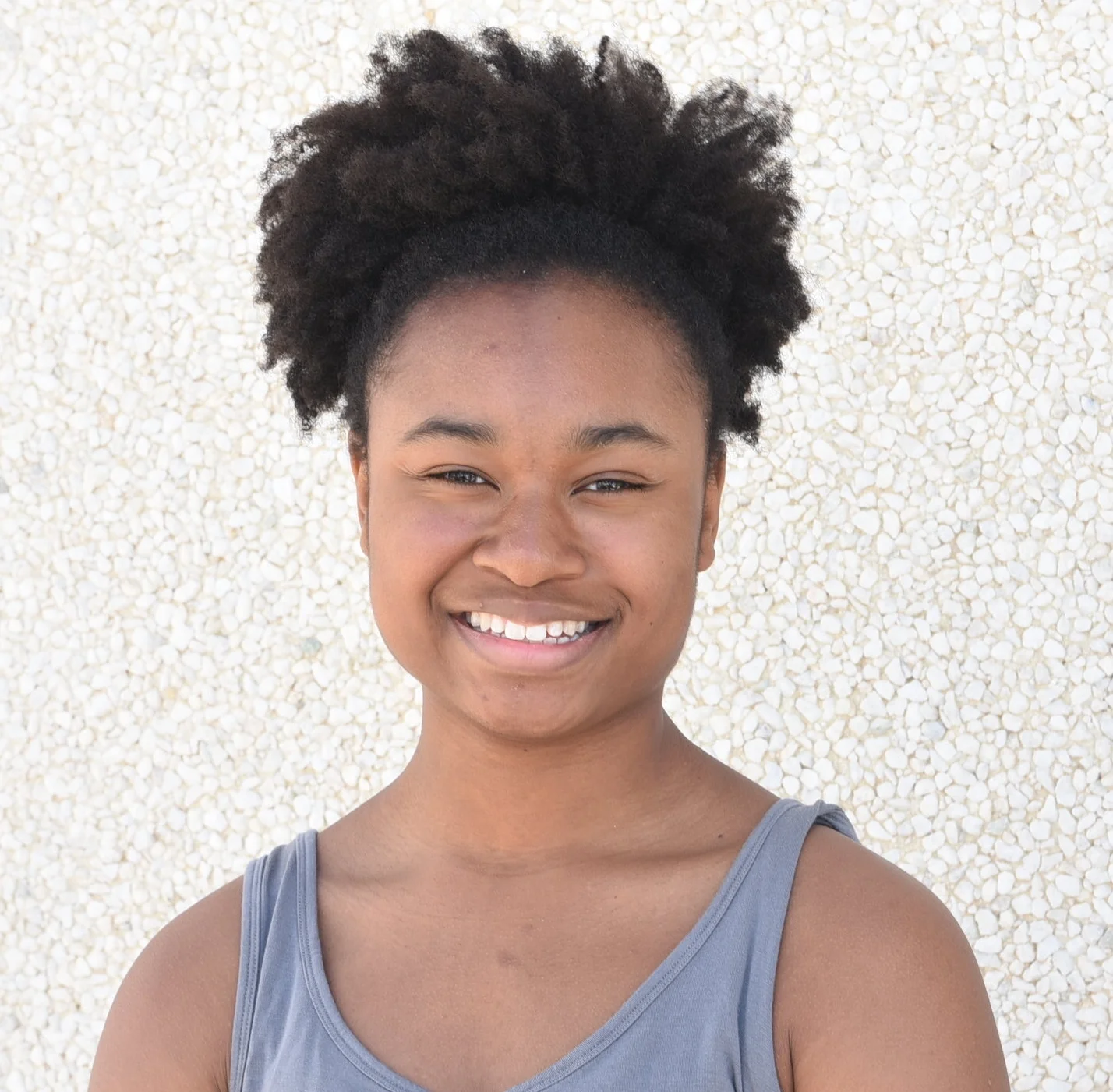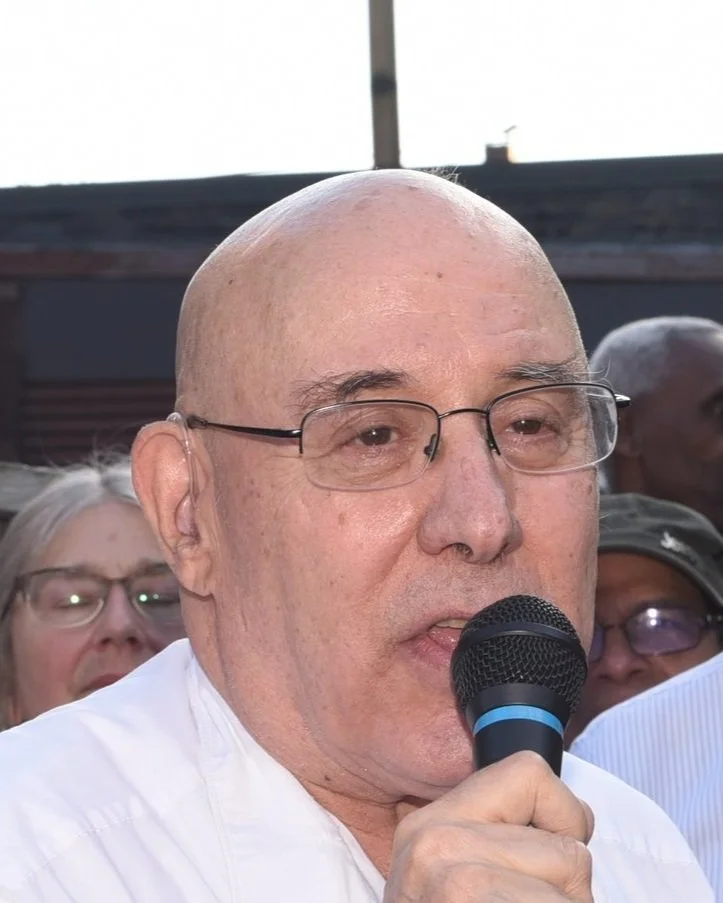Laneway unveiled to honour Charley Roach
August 2, 2018
A laneway close to where Charles (Charley) Roach’s law office once stood now bears the name of the civil rights attorney and activist who died six years ago.
Just north of St. Clair Ave. W. in Hillcrest Village, Charley Roach Lane extends between Arlington Ave. and Rushton Rd.
Ward 21 councillor Joe Mihevc forwarded the naming application from the community to city council in October 2017.
“I am proud to have known Charley and to say that we now can honour him and all that he stood for by commemorating his life with a lane,” said Mihevc at the unveiling ceremony on July 18.
Lawyer Peter Rosenthal, who met Roach in the early 1970s, led the campaign for the public lane to carry his friend’s name.
Peter Rosenthal
“It was very easy to get support for this,” the adjunct law professor and University of Toronto math professor emeritus pointed out. “Charley contributed to fighting racism and other injustices and was fantastic in that respect. He always stood his ground and was courageous about doing so.”
Rosenthal was part of a group that launched a petition requesting the Canadian Cabinet direct the Minister of Citizenship, Immigration & Multiculturalism to award Roach citizenship without him having to take the oath.
A permanent Canadian resident, Roach vehemently refused to pledge allegiance to the Queen which is a requirement for all citizenship candidates over the age of 14.
Sunset Roach, who with her sisters Kikeola and Dawn consented to the honour, said her father was not mean-spirited towards royalty.
“He wasn’t disrespectful to royalty,” said the Toronto District School Board educator. “It was about respect for self and one’s own history. You don’t need to put down someone else in order to speak for yourself.”
After unsuccessfully filing a class action lawsuit, Roach took his case to the Federal Court of Canada which ruled against his motion. An appeal to the Supreme Court was dismissed and the case went before the Ontario Superior Court of Justice which, in June 2012, granted him and three other individuals the right to continue to argue that the oath to the Queen is unconstitutional.
In 1993, Roach launched the Alliance for a Canadian Republic and nine years later was at the forefront of the establishment of Citizens for a Canadian Republic which is the republican movement’s principal voice. He also co-founded Republic Now which employs a collaborative strategy in advancing the republican cause.
Charley Roach Lane was unveiled on July 18
Roach lost out on an opportunity to become a provincial court judge because it required the oath which he opposed. He also did not possess a Canadian passport and was unable to vote despite living here for 57 years.
Zanana Akande, Canada’s first Black female cabinet minister, became aware of Roach just after leaving high school and admired his resolve to stand up and speak for the community on controversial issues.
“This is a lane not just for Charley, but all of us,” she said. “If I get down and I get depressed, you might find me down here walking up and down to get some inspiration.”
In 1978, Roach established the Movement of Minority Electors to increase the presence of Blacks in the political process. He also chaired the Pan African Movement (Canadian chapter), unsuccessfully lobbied for a national holiday here to observe the birthday of Dr. Martin Luther King Jr. and joined hands with educator and activist Lennox Farrell to form ‘The Freedom Ride Against Apartheid’ to protest racial segregation in South Africa.
Lennox Farrell
“He was an individual who understood the power of an individual on the side of right,” Farrell said. “He also understood that you never work alone….He didn’t become a Canadian citizen, but he became a Canadian icon. Today, for me in a personal sense, is a kind of closure on Charley. Today I can finally put Charley down.”
Born in Belmont, Trinidad to a trade unionist father and a spiritual development mother, Roach came to Canada in 1955 to pursue theological studies at the University of Saskatchewan. He switched to philosophy and, after coming to Toronto, attended law school at the University of Toronto.
As part of the process to be called to the Bar in 1963, Roach swore allegiance to the Queen for the last time.
A staff lawyer for the City of Toronto before opening his own legal practice in 1968, Roach’s clients included Black Panther Party members seeking refuge in Canada from prosecution in the United States and domestic workers facing deportation. His law firm was also the (Black Action Defence Committee) BADC’s official legal arm.
Versed in criminal, civil litigation and administrative law, he appeared before the International Criminal Tribunal for Rwanda in 1999 as lead defence counsel for a Hutu journalist subjected to human rights abuse.
Roach’s contributions were not only confined to the legal arena and community activism.
He was a published poet, painter and social club operator who worked as a musician and bandleader in the city in the late 1950 and early 1960s and a Caribbean carnival co-founder.
“It was an opportunity for the multi-faceted Charley Roach to indulge his artistic nature,” said the Caribbean carnival chief executive officer Denise Herrera Jackson. “He wanted to ensure that the dream of the other 37 founders would not be lost and the opportunity to present a robust Caribbean culture to audiences through the arts associated with carnival will continue to thrive not only in Toronto, but across the country”
Some of Herrera Jackson’s fondest memories of Charley include seeing him sitting at his piano playing all types of music.
“His hands would move across the keys softly or deliberately depending on the type of tune he was playing,” she added. “He also loved composing and singing calypsoes or joining friends on the conga drums.”
Activist Dari Meade was influenced by Roach who he describes as a ‘renaissance man’.
Dari Meade
“A lot of my political schooling in my formative years came from sitting at his feet,” said Meade. “He and Dudley (Laws) were the heavy lifters in our community. Black consciousness in the modern era in our city owes its existence to Charley who taught us that culture is the ultimate from which we spring.”
Several other community leaders, including BADC’s co-founder Owen Leach, Winston LaRose, Margaret Gittens who is the sister of Roach’s late wife Hetty Roach and educators Mannie Dick and Clem Marshall, attended the unveiling.
“One of the ways in which the history of people is erased is when we fail to preserve legacies,” he said. “Honouring Charley is significant in that it sends the message that those in our community – past and present – have made and are making major contributions and they should be celebrated.”










